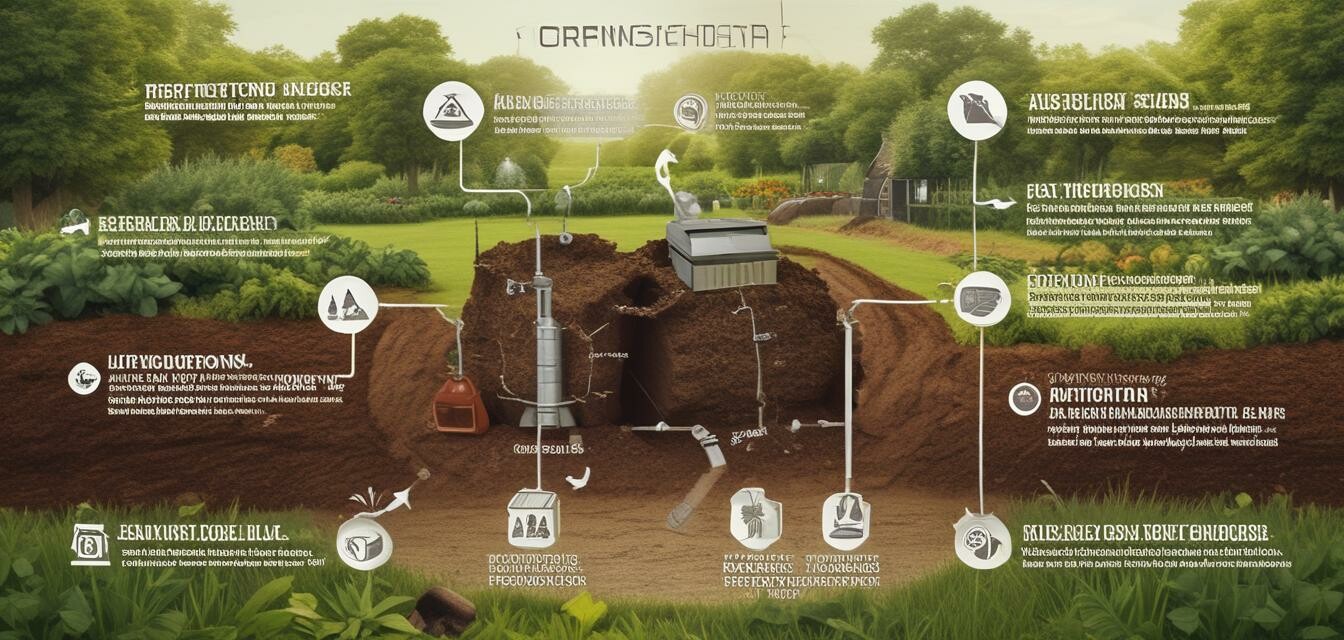
The Environmental Impact of Composting in 2024
Key Takeaways
- Composting reduces landfill waste significantly.
- Innovation in composting methods promotes sustainability.
- Community composting initiatives are on the rise, impacting local economies.
- Smart composters enhance efficiency and ease of use.
- Environmental awareness is driving demand for eco-friendly composting options.
As we delve into 2024, composting has taken on an essential role in how we approach waste management and sustainability. This article examines the evolving nature of composting, its environmental benefits, and how communities are embracing these practices.
The importance of composting
Composting is not just a trend; it’s a crucial part of reducing waste, recycling nutrients, and promoting soil health. Here’s how it impacts our environment:
- Reduces landfill waste by turning organic materials into usable compost.
- Minimizes greenhouse gas emissions through the diversion of waste from landfills.
- Enhances soil health and fertility, leading to better plant growth.
- Supports biodiversity by creating rich ecosystems in gardens and farms.
How composting has evolved in 2024
Over the years, composting has seen significant innovations and trends. Below are some of the major changes witnessed as we step into 2024:
- Smart Composters: With the rise of smart technology, composters equipped with sensors and monitoring systems are making it easier for households to compost efficiently.
- Community Initiatives: Local governments are increasingly investing in community composting programs, bringing together residents to manage food waste collectively.
- Eco-friendly Practices: Awareness around sustainability is prompting people to seek out more eco-friendly composting methods such as Bokashi composting.
Trends shaping composting in 2024
Here are some key trends that are shaping how composting is practiced and perceived:
| Trend | Description | Impact |
|---|---|---|
| Smart Home Composting | Technological innovations that automate the composting process. | Increases participation in composting among tech-savvy individuals. |
| Community Composting | Organized collective efforts in composting at local levels. | Enhances community bonding and reduces waste in landfills. |
| Enhanced Awareness | Public awareness campaigns about the benefits of composting. | Encourages more households to participate in eco-friendly practices. |
| Access to Resources | More resources and tools for individuals to start composting at home. | Facilitates easier and more efficient composting for beginners. |
| Use of Composting Tools | Growth in the availability of specialized composting tools like tumblers and worms bins. | Improves the composting process and outcomes for gardeners. |
Exploring the benefits of composting
Composting offers numerous advantages, from reducing waste to improving soil quality. Below are key benefits:
- Waste Reduction: Composting diverts organic waste from landfills, helping tackle the growing waste problem.
- Improved Soil Quality: Compost adds nutrients to the soil, making it richer and more fertile for plants.
- Water Conservation: Compost helps retain moisture in the soil, leading to reduced water usage in gardening.
- Climate Change Mitigation: By reducing methane emissions from landfills, composting plays a role in combating climate change.
Community composting initiatives
Various cities and towns are introducing community composting initiatives to engage residents and promote waste reduction. Here are some notable aspects:
- Encouraging participation through workshops and educational campaigns
- Creating shared composting spots for residents to use
- Having local governments support these initiatives with resources
For further insights on community composting efforts, check out our article on Composting News.
Challenges facing composting
Despite the numerous benefits, composting does face challenges in its implementation, including:
- Public misunderstanding about what can and cannot be composted.
- Space limitations for urban residents who wish to compost at home.
- Initial investment in composting systems may deter some households.
Conclusion: A path forward for composting
As we move further into 2024, composting will continue to evolve and impact our environment positively. By embracing modern methodologies and promoting community initiatives, we can enhance the effectiveness of composting and its benefits to our planet.
Tips for Starting Composting at Home
- Start with a small composting bin for ease.
- Learn what materials are compostable and what are not.
- Mix green (nitrogen-rich) and brown (carbon-rich) materials for best results.
- Monitor moisture levels in your compost to maintain optimal conditions.